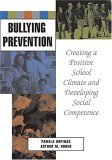 |
 |
|
A Resource for Athens Area Families
|
|
For the last four years, she has had to deal with people being very ugly and rude. My daughter explained to me, "Mom, I can deal with all the name calling, but this one about a disease really hurts." She is at the point she doesn't want to go to school. As a mother, I don't wish my children to be unhappy. I worry about her very often. I am looking for some answers on how to deal with other children starting rumors like this one. Like I mentioned to her tonight, she has a strong front, but deep down I know she is hurting. What can I, as a parent, do to help her get through this? -Hopeless Loss Every day, more than 160,000 children stay home from school because of bullying. Almost one in four children in grades 6 through 10 report being bullied at school each year. Whether it is verbal taunts or physical fighting, bullying has a profoundly negative impact on children - both bullies and victims. It negatively affects school performance, harms a child's mental and physical health and can lead to more serious violence in adulthood. People who were bullied as children are more likely to suffer depression and low self esteem as adults. Bullies are more likely to be involved in criminal activity later in life. Bullying is meant to harm another person and it happens repeatedly over time. Physical or emotional (direct) bullying includes teasing, threatening and hitting. Relational (indirect) bullying includes spreading rumors, intentionally excluding or socially isolating someone. Bullying peaks in the middle school years and tends to taper off in high school. University of Georgia professors, Pamela Orpinas, PhD, MPH and Arthur (Andy) M. Horne, PhD, authors of Bullying Prevention: Creating a Positive School Climate and Developing Social Competence, say that if parents and teachers really believe bullying is wrong and understand the harm it does both to the victim and the bully - they will act to stop it. Bullying is not tolerated in adults and it should never be okay for children. Often, acts that adults can be prosecuted for - stealing money, threatening to hit or injure, and physically assaulting others - are not punished at all when the bully is a child. The behavior is reinforced if it is not stopped. There are several risk factors that contribute to a child being a bully. These include poor academic performance, a disruptive family life, peers that support bullying, parents who encourage aggressiveness and lots of unsupervised time. Studies indicate that children who come from abusive families are more likely to be bullies. The more risk factors a person has, the more likely they are to engage in high risk behaviors. I always told my children that bullies probably didn't feel very good about themselves. While this is sometimes true, some bullies have very strong self esteem. Bullying has been successful for them. This fake self esteem is based on fear and intimidation and putting others down. Healthy self esteem comes from having good friendships, satisfying interests and feeling valued as a person. Bullies are sought after because they are powerful, not because they are loveable. Usually, they are not really liked at all as children or as adults. Many adults see bullying as "just part of growing up." According to Orpinas and Horne, there is a great deal more violence in schools now. Two thirds of children who commit homicide in school are the victims of bullies. Statistics are similar for children who commit suicide. It's difficult to tell how many children drop out of school because of bullying, but it is believed to be a significant number. "When you ask adults about being bullied as children, most can recall a bullying incident. We don't remember things that happened to us 20 or 30 years ago if they had no impact on our lives," says Horne. "Often these incidents affect how people handle conflict as adults - avoidance, aggression, etc." Orpinas stresses that victims should not be expected to stop the abuse. Adults must step in and make the behavior stop. Encouraging the child to "fight back" is not recommended. It can backfire and make the problem worse. Teachers need to know the difference between tattling (meant to get someone in trouble) and asking for help (wanting the problem to stop.) What can parents do? If your child is a bully:
If your child is a victim:
Children need and want their parents to be involved in their lives no matter what your 13 year old says! Do fun things together as a family. Eat dinner together. Know who their friends are and what they are doing on the internet. It's not just about supervision, it's about being involved in a loving relationship. This involvement begins in infancy and builds over a child's life. Being a bully or the victim of one is not a "sentence." With intervention, a child can learn from and be strengthened by it. But stopping it is up to adults, not children. It's not just part of growing up. Pat Nielsen, RN, MEd is a Maternal Child Educator at Athens Regional Medical Center and an Athens Area Child Abuse Prevention Council Board Member
|
. |
|
|
|
© 1998 - Athens Parent, Inc. All
rights reserved.
Reproduction in whole or in part without permission is prohibited. |
|
Send comments or suggestions to: webmaster@athensparent.com
|
 I
I

